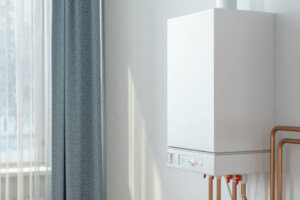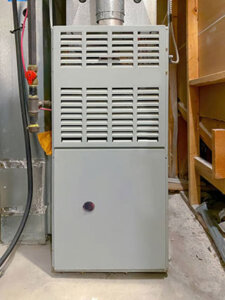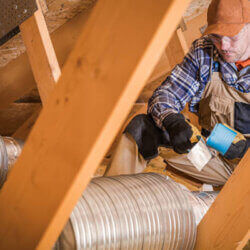
Choosing the right heating system for your home is a crucial decision that impacts your comfort, energy efficiency, and budget. With various types of furnaces available, understanding their differences can help you make an informed choice. Here, we compare the most common types of furnaces to guide your decision-making process.
At Galmiche & Sons, we specialize in helping St. Louis homeowners select and maintain the ideal furnace for their needs. To learn more or request a quote for your furnace installation service, contact us today!
Types of Furnaces: An Overview
Furnaces are classified based on their energy source. The most popular types include gas, electric, oil, and propane furnaces. Each type has unique advantages and disadvantages, which we’ll explore below.
Gas Furnaces
Gas furnaces are among the most widely used heating systems in the United States. They rely on natural gas to generate heat and are known for their efficiency and reliability.
Pros:
- High energy efficiency, especially with modern high-efficiency models.
- Lower operating costs compared to electric furnaces.
- Provides consistent and powerful heat, ideal for colder climates.
Cons:
- Higher upfront furnace installation costs.
- Requires access to a natural gas line.
- Regular maintenance needed to ensure safety and efficiency.
Electric Furnaces
Electric furnaces use electrical resistance to generate heat, making them a popular choice for homes without natural gas access.
Pros:
- Lower initial installation cost.
- Compact size and easier installation.
- Quiet operation and no emissions during use.
Cons:
- Higher operating costs due to electricity prices.
- May struggle to heat larger spaces in extremely cold climates.
- Slower to heat up compared to gas furnaces.
Oil Furnaces
Oil furnaces are less common but still a viable option for homes in rural areas without access to natural gas.
Pros:
- Delivers intense heat, making it suitable for extremely cold regions.
- Can be a cost-effective option if oil prices are low.
Cons:
- Requires regular fuel deliveries and storage.
- Higher maintenance needs, including annual cleaning.
- Produces more emissions compared to gas and electric furnaces.
Propane Furnaces
Propane furnaces are similar to gas furnaces but use propane as their fuel source. They’re often found in rural areas.
Pros:
- Efficient and powerful heating capabilities.
- Cleaner-burning fuel compared to oil.
- Suitable for areas without natural gas access.
Cons:
- Requires propane delivery and on-site storage.
- Higher fuel costs compared to natural gas.

Factors to Consider When Choosing a Furnace
When deciding between the types of furnaces, consider the following factors:
Energy Efficiency
Look for furnaces with high Annual Fuel Utilization Efficiency (AFUE) ratings. High-efficiency furnaces may have a higher upfront cost but save money on energy bills over time.
Installation Costs
Gas and oil furnaces generally have higher furnace installation costs due to the need for venting and fuel connections. Electric furnaces tend to have lower installation costs but may result in higher operating expenses.
Operating Costs
Consider fuel prices in your area. While gas furnaces are typically cheaper to operate, electricity may be more affordable in some regions.
Climate
Gas and oil furnaces are better suited for colder climates, while electric furnaces can work efficiently in milder regions.
FAQs About Types of Furnaces
Which type of furnace is the most energy-efficient?
How long do furnaces typically last?
Can I switch from one furnace type to another?
How often should I service my furnace?
Contact Galmiche & Sons for Expert Furnace Services in St. Louis
Deciding between the types of furnaces can be challenging, but Galmiche & Sons is here to help. With decades of experience serving the St. Louis area, we provide expert advice, installation, and maintenance services tailored to your needs.
Contact us today to learn more about your options or schedule a consultation. Let us help you find the perfect furnace to keep your home comfortable year-round!









